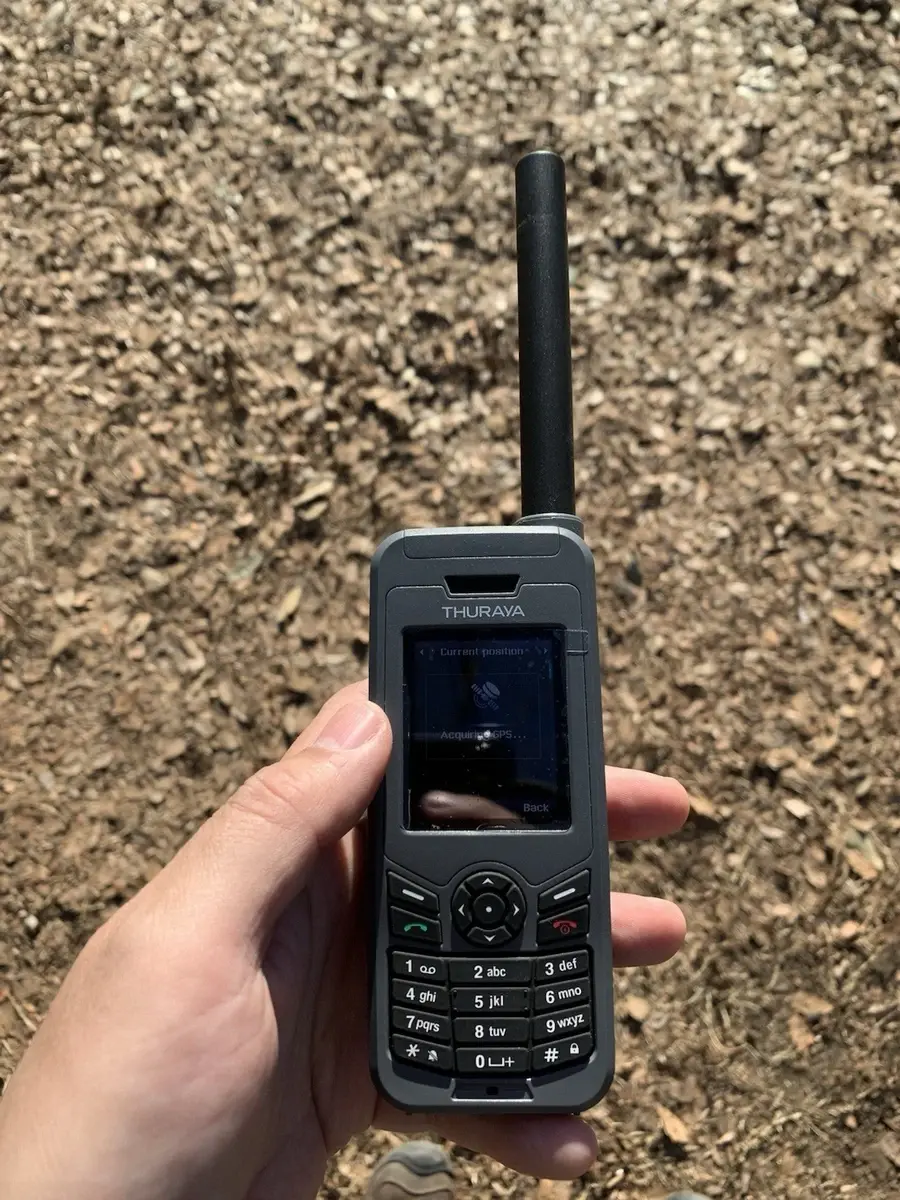No, you still cannot use Starlink in South Africa - Satellite Internet Anywhere with the Iridium GO! Exec
- GMagid

- Sep 18, 2025
- 7 min read
Updated: Oct 9, 2025
Why Starlink Isn’t the Satellite Internet Answer Yet (Especially in South Africa)
It’s impossible to talk about satellite internet without mentioning Starlink, the service from SpaceX (Elon Musk) that has shaken up the industry. Starlink offers faster internet speeds at relatively affordable monthly rates, making it attractive for rural and home users worldwide.

However, there are two big limitations that South Africans need to understand:
Starlink Availability in South Africa
Starlink is not yet available in South Africa. Due to current regulations and licensing requirements, Starlink has not been approved for local use. While it’s popular in countries like the USA, UK, and parts of Africa such as Nigeria and Mozambique, South Africans currently can’t legally buy or operate it.
Portability vs Practicality
Portability vs Practicality. Starlink requires a dish antenna, power source, and setup. That makes it suitable for a farmhouse or semi-permanent installation, but not ideal for someone who needs internet on the move. You can’t throw a Starlink dish into your backpack or keep it ready in your 4x4 vehicle as you cross Botswana. You also can't use it in Namibia for now.
It seems to be possible to "use it" for a while, but then it gets cut off or turned off. Right now, it's not possible at all according to some people online.
This is where the Iridium GO! Exec clearly stands apart. It may be more expensive in terms of airtime, but it is globally available today and works in places where Starlink simply can’t.
So while Starlink might eventually come to South Africa and offer a cheaper, faster option, it’s not a solution for mobile, handheld, emergency-ready internet in 2025.
The Importance of Reliable Internet
Most of us take the internet for granted. At home, we connect to fibre. On the road, we use mobile data. In restaurants and offices, we jump onto Wi-Fi. But what happens when you’re far from any tower, fibre line, or hotspot? What if you’re in the middle of the Kalahari, out at sea, or responding to an emergency in an area with no infrastructure?
This is where satellite internet becomes more than a luxury — it becomes a lifeline. And few devices deliver that lifeline as effectively as the Iridium GO! Exec, a portable satellite internet terminal designed for reliable communication anywhere on Earth.
Why Price Isn’t the Only Factor
When shopping for communication tools, many people focus on price first. That’s understandable — nobody wants to overspend. But when it comes to satellite internet, the key question should never be “What’s the cheapest device?” It should be:
“What will actually work when I’m in the middle of nowhere and need to communicate?”
The Iridium GO! Exec is not the lowest-priced satellite solution. There are bulkier satellite terminals that might deliver higher bandwidth, and there are consumer-focused services like Starlink that promise cheaper data. But price alone doesn’t capture the full picture.
When you’re stuck without cell coverage, needing to send an urgent email, confirm a payment, or send a WhatsApp location pin to your team, the cost of the device fades into the background. What matters most is reliability and accessibility. That’s exactly what the GO! Exec provides.
Satellite Internet that is Compact, Portable, and Built for the Real World
Unlike larger satellite internet systems that require dish antennas or complex installation, the Iridium GO! Exec is small enough to fit into a bag yet powerful enough to create a Wi-Fi hotspot anywhere in the world, with a line of sight to the sky above you, of course.
That portability makes it ideal for:
Safari guides working deep in the bush
Farmers in remote areas
Sailors and yacht owners
Hikers, mountaineers, and overlanders
NGOs and emergency responders
The GO! Exec connects to the Iridium satellite constellation, the only truly global network that covers every corner of the Earth — including oceans and polar regions. All you need to do is switch it on, let it connect to the satellites above, and within minutes you have access to essential internet apps.

The Power of WhatsApp and Email in Remote Areas
One of the biggest misconceptions about satellite internet is that it needs to be “fast” to be useful. While we’re all used to streaming YouTube or scrolling Instagram at high speed, in reality, the most important communication tools are lightweight:
WhatsApp for text messages, voice notes, and location sharing
Email for business, contracts, invoices, or urgent updates
Basic apps like Telegram or Messenger
The Iridium GO! Exec is not meant for streaming movies or endless video calls. Instead, it’s designed to prioritise the communication apps that matter most when you’re far from civilisation.
That’s where its true strength lies. With a small, battery-powered device, you can confirm that your team is safe, let your family know you’re okay, or receive mission-critical instructions — all without depending on fragile local networks.
Real-Life Use Cases
The GO! Exec isn’t just a piece of tech — it’s a field-proven communication tool. Here’s how it can be used in different scenarios:
Overlanding in Namibia: Share your live location via WhatsApp when you’re deep in the desert.
Farming in Limpopo: Send and receive critical supply emails even when the local cell tower is down.
Yachting off the coast: Keep contact with family or update your crew on weather changes.
Emergency response: Coordinate relief efforts in areas hit by floods or wildfires where all infrastructure is down.
In all these situations, speed isn’t the priority — connection is. That’s the core value of the Iridium GO! Exec.
Airtime: The Other Half of the Story
Buying the device itself is only half of what you need. Satellite connectivity works on a subscription or prepaid airtime model. At Satcomms, we not only supply the Iridium GO! Exec unit but also provide flexible airtime packages that fit your exact use case — whether you’re going on a short expedition, running long-term field operations, or preparing for emergency deployment.
This combination of hardware plus tailored airtime ensures you’re never left with a device that can’t be used.
Why the GO! Exec is Worth the Investment
If you’re still thinking “But isn’t it expensive?”, ask yourself:
What is it worth to be able to contact your family in an emergency?
How valuable is it for your business to confirm an order from a remote site?
What price do you put on peace of mind when travelling beyond coverage?
The GO! Exec may not be the cheapest, but it’s designed to be the most practical, portable, and globally reliable, and it’s available now. In a world where connectivity equals safety, opportunity, and efficiency, that’s priceless.
Conclusion: Embracing the Future of Connectivity
Satellite internet is no longer just for ships, oil rigs, or military operations. With the Iridium GO! Exec, it’s now something anyone can carry in their bag or keep in their vehicle — ready for when the need arises.
While services like Starlink are exciting and may eventually change the market, they’re not available in South Africa and don’t solve the problem of mobile, on-the-go connectivity.
So if you need a device that works today, anywhere on Earth, without waiting for regulatory approvals or carrying around bulky equipment, the Iridium GO! Exec is the solution.
👉 Explore the device and airtime plans now: Iridium GO! Exec on Satcomms. Stay connected, stay safe, and never let distance cut you off from what matters most.
AQ: Iridium GO! Exec & Satellite Internet
1) What can I actually do with the Iridium GO! Exec?
Text/voice calls over Iridium, send/receive email, WhatsApp (text/voice notes), basic messaging apps, GRIB/weather file downloads, and light web tasks. It’s built for essential comms, not streaming.
2) How fast is the internet on the GO! Exec?
Up to ~88 kbps down and ~22 kbps up optimised for lightweight apps like email and WhatsApp (text/voice notes).
3) Can I use WhatsApp?
Yes—best for text and voice notes. Use the device’s WhatsApp-optimised profiles and meter/limit background data on your phone to avoid runaway usage.
4) Will normal web browsing work?
Light pages may load, but expect patience. The device is for critical comms, not rich media, social feeds, or video calls.
5) How many devices can connect?
You can create a Wi-Fi hotspot. In practice, keep connections minimal (1–2 devices) to preserve bandwidth and battery.
6) Does it work everywhere—even offshore or in the bush?
Yes. Iridium’s LEO constellation provides truly global coverage, including oceans and polar regions.
7) How long does the battery last?
Expect hours of active use per charge (varies by temperature, voice/data time, and number of connected devices). Many users pair it with a power bank.
8) Is Starlink cheaper than Iridium?
Generally, yes on raw Mbps pricing—but Starlink isn’t a like-for-like replacement. It’s a higher-throughput, power-hungry dish system suited to fixed/vehicle setups, not a pocketable emergency hotspot.
9) Is Starlink available in South Africa?
Not officially. ICASA has confirmed Starlink is not authorised/licensed locally and has warned against unlawful use; Starlink has cut off roaming workarounds. Policy discussions continue, but as of September 18, 2025, it’s not available.
10) Why pick Iridium GO! Exec if Starlink is cheaper?
Because portability and certainty matter. GO! Exec is small, battery-powered, and works today across SA, SADC, the ocean—anywhere you go. Starlink needs a dish, power, and regulatory approval in SA.
11) What airtime do I need?
Choose a plan that matches your trip length and data profile (e.g., email/WhatsApp vs. heavier use). We can provision flexible GO! Exec airtime on the same product page.
12) How do I keep data costs under control?
Use the GO! Exec Connection Manager, set your phone to “metered” Wi-Fi, disable auto-updates/cloud sync, and prefer text-first modes in apps.
13) Can I make normal phone calls?
Yes—two concurrent voice lines are supported while a data session runs (within device and plan limits).
14) Does GO! Exec replace an inReach/PLB for SOS?
No—carry an appropriate emergency device for dedicated SOS. GO! Exec is a comms hotspot and voice/data terminal.



Comments